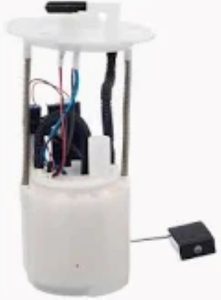The causes of excessive vibration of a fuel pump are several, and most of them indicate that something is wrong with the pump. Among the more common causes of vibrations is wear on the internal parts of the pump. A fuel pump is designed to function smoothly; in most instances, it lives for about 100,000 to 150,000 miles. When they become worn out, bearings and motors can wear out, leading to increased friction and hence higher levels of vibration than 20-30% above the nominal conditions.
Other causes for excessive vibration may be due to improper installation. If the fuel pump is not bolted down properly or if hardware relating to mounting is loose, then the pump will necessarily shift during its operation, causing pronounced vibrations. For instance, one study documented that poorly mounted fuel pumps may eventually vibrate at frequencies that cause further loosening of fittings and components. This can be minimized if it is installed correctly and all bolts are tightened to the specified torque set by the manufacturer.
Cavitation is due to a partial pressure drop in the fuel pump because of inadequate fuel supply or blockage of fuel lines. Cavitation is the production of air bubbles in the fuel by the pump under vaporization conditions; this erratic pumping action causes increased vibration. It can cost as much as 15% in loss of pump efficiency and, if neglected, will result in early failure of the pump. Since proper fuel levels and clean filters lead to a reduction in cavitation, then routine checks of the fuel levels and filter replacement will maintain a steady fuel flow.

Besides, poor-quality or adulterated fuel can also create the condition of excessive vibration. This is because there may be impurities and particulates in the fuel which will block the pump or filter, so it needs to work harder for maintaining pressure, thus increasing the possibility of creating vibrations. Only those types of fuel should be used that conform to the specifications provided by the vehicle manufacturer and change the fuel filter from time to time to get clean fuel delivery.
Other causes for such trembling may also be electrical: a failing relay or poor wiring connections. A fuel pump functions on stable 12-volt power. Fluctuations due to faulty wiring or a malfunctioning relay would also result in incorrect operation or inconsistent performance of the pump. This in turn leads to vibration. This may be supported by the maintenance of appropriate power through checks in electrical connections and replacement of worn out parts.
These ingredients, when addressed, will drastically reduce undue vibration from a fuel pump, thus allowing reliable operation. Three preventative measures include regular maintenance, proper installation, and attention to fuel quality to avoid problems that might lead to unwanted vibrations, furthering the longevity of the Fuel Pump.